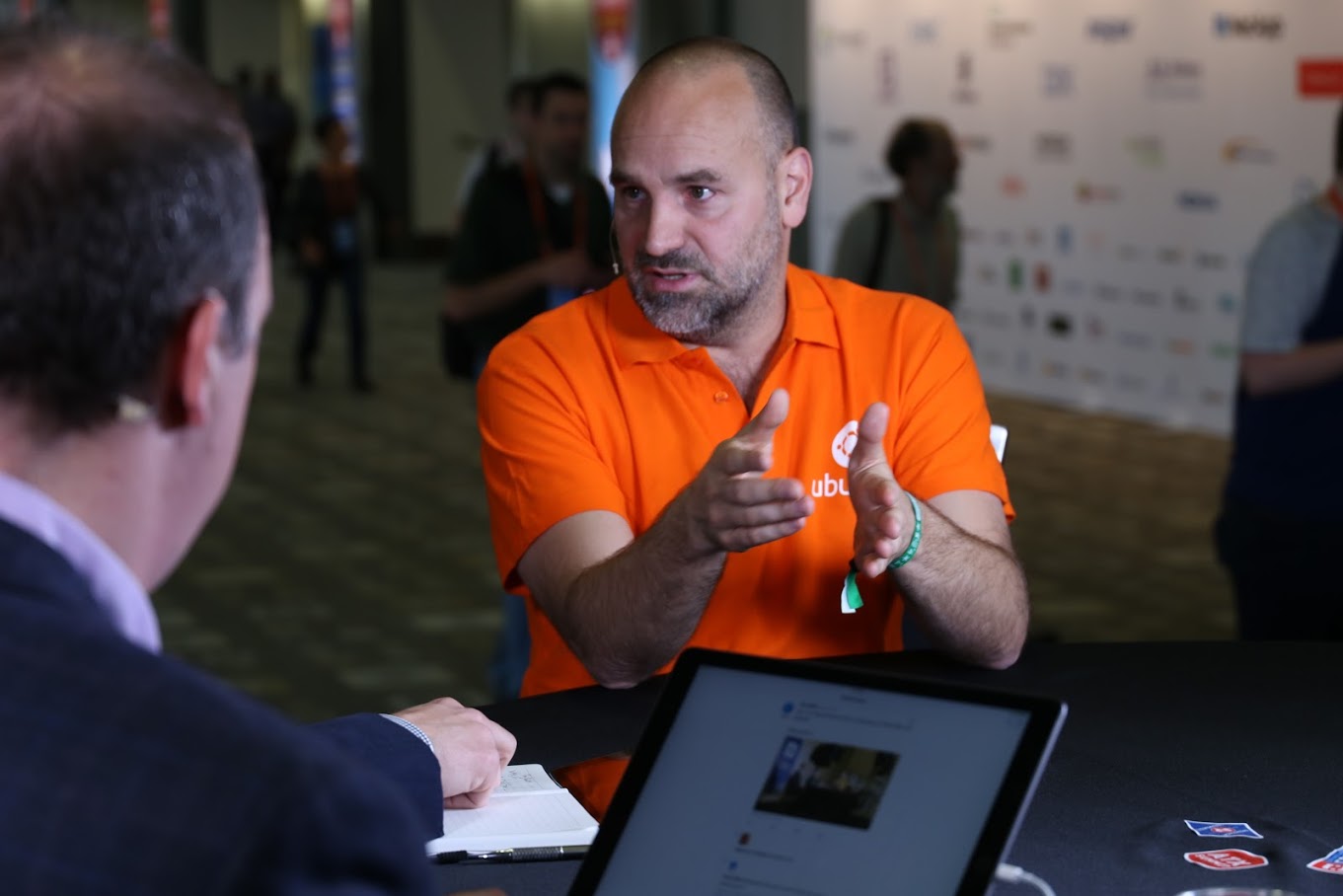 NEWS
NEWS
 NEWS
NEWS
 NEWS
NEWS
Gone are the days when the open-source community was a guerrilla organization of free-spirited independent experts working together, according to Ubuntu founder Mark Shuttleworth. He sees a very different modern community, where tactical positioning by large organizations is the new standard behavior and open source is viewed as a weapon to be used to go faster than standard development processes.
Third-time theCUBE alumni Shuttleworth took time out from the OpenStack Summit in Austin, TX, to chat with Stu Miniman (@stu) and Brian Gracely (@bgracely), cohosts of theCUBE, from the SiliconANGLE Media team.
“We can only see it as a healthy thing,” said Shuttleworth about living in a world where Ubunto can be run in the Windows services environment. He sees the new cooperation between Ubuntu and Microsoft as enabling the next wave of innovation by reaching an audience that was previously closed, opening a whole new talent pool that the free software community and open source can access.
Asked where he thinks open source is heading, Shuttleworth pointed out that it depends on if you are a vendor or an end-user. Vendors are not concerned about selling to AWS, Azure or Google, and so they are happy to lock into open source as the public cloud is not a market they are concerned about, he said. However, end-users want the benefits of hybrid cloud economics from AWS, Microsoft or Google and don’t want to be locked into open source.
Shuttleworth sees tension occurring when vendors “force” stuff into open source because they think it’s the only way they can move their product. But this doesn’t make sense to the end-user. He sees an illusion of momentum, but believes the reality is that only the core — storage, network and compute — is solid, with the periphery potentially weak.
Although he believes it is a controversial message that vendors don’t want to hear, he said, “If that stuff can’t cut it on AWS, on Azure, on Google, I don’t think it’s going to make a difference in the world.”
Shuttleworth stated, just like when the industry had to undergo a mind-shift to adjust to Big Data, the same thing is required for big software. He listed the characteristics of big software as any interesting thing that:
These are the questions facing the industry, as teams now have to learn new software faster than they can onboard it. Shuttleworth sees big software as requiring the ability to grab the software and the operations as code, eliminating the need to go through the skills development process before standing a new piece of software up.
Watch the full interview below, and be sure to check out more of SiliconANGLE and theCUBE’s coverage of OpenStack Summit — Austin. And make sure to weigh in during theCUBE’s live coverage at the event by joining in on CrowdChat.
Support our mission to keep content open and free by engaging with theCUBE community. Join theCUBE’s Alumni Trust Network, where technology leaders connect, share intelligence and create opportunities.
Founded by tech visionaries John Furrier and Dave Vellante, SiliconANGLE Media has built a dynamic ecosystem of industry-leading digital media brands that reach 15+ million elite tech professionals. Our new proprietary theCUBE AI Video Cloud is breaking ground in audience interaction, leveraging theCUBEai.com neural network to help technology companies make data-driven decisions and stay at the forefront of industry conversations.